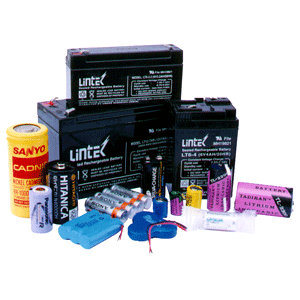Battery Recycling is a Great Way to Go Green!
 Batteries are essential for many of our every-day activities, and we can be responsible battery-users by properly recycling all used and dead batteries instead of throwing them into the landfill. Batteries must be recycled properly. When batteries are recycled, they are broken down into their components so that new batteries can be made. If batteries go to the landfill, they are compacted by heavy machinery, break open, and spill their contents into the environment. The battery acid and heavy metals inside seep into the water table, where eventually it will contaminate our drinking supply.
Batteries are essential for many of our every-day activities, and we can be responsible battery-users by properly recycling all used and dead batteries instead of throwing them into the landfill. Batteries must be recycled properly. When batteries are recycled, they are broken down into their components so that new batteries can be made. If batteries go to the landfill, they are compacted by heavy machinery, break open, and spill their contents into the environment. The battery acid and heavy metals inside seep into the water table, where eventually it will contaminate our drinking supply.
Recyclable battery types include:
Lead-Acid Automobile Batteries
Ninety-six percent of all lead-acid batteries are recycled. Almost any retailer that sells lead-acid batteries collects used batteries for recycling, as required by most state laws. Reclaimers crush batteries into nickel-sized pieces and separate the plastic components. They send the plastic to a reprocessor for manufacture into new plastic products and deliver purified lead to battery manufacturers and other industries. A typical lead-acid battery contains 60 to 80 percent recycled lead and plastic.
Non-Automotive Lead-Based Batteries
Gel cells and sealed lead-acid batteries are commonly used to power industrial equipment, emergency lighting, and alarm systems. The same recycling process applies as with automotive batteries. An automotive store or a local waste agency may accept the batteries for recycling.
Dry-Cell Batteries
Dry-cell batteries include alkaline and carbon zinc (9-volt, D, C, AA, AAA), mercuric-oxide (button, some cylindrical and rectangular), silver-oxide and zinc-air (button), and lithium (9-volt, C, AA, coin, button, rechargeable).
- Alkaline and Zinc-Carbon Batteries: Alkaline batteries, the everyday household batteries used in flashlights, remote controls, and other appliances. Several reclamation companies now process these batteries.
- Button-Cell Batteries: Most small, round button-cell type batteries found in items such as watches and hearing aids contain mercury, silver, cadmium, lithium, or other heavy metals as their main component. Button cells are increasingly targeted for recycling because of the value of recoverable materials, their small size, and their easy handling relative to other battery types.
Contact us for all of your battery recycling needs!
HT: EPA

